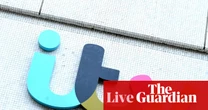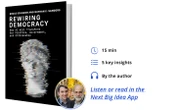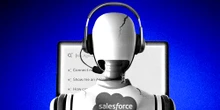Costco is famously adored by its fans, and its leadership wants the discount big-box chain to remain beloved. Costco co-founder and former CEO James Sinegal so fervently believes in keeping customers happy that he’s driven to profanity to express the strength of his feelings.
“You can’t say ‘People are our most important product,’ and hang signs all over the place that say ‘People are our most important product,’ and then treat them like shit…. Your customers or your suppliers are going to see that you don’t really mean it,” he recently told an interviewer.
Which is why a recent policy change by the retailer is so fascinating.
Starting this month, Costco began enforcing a new benefit for “executive tier” members, who pay $130 annually rather than the $65 for Gold or Businesses membership. Those who pay extra now get an extra hour to shop in relative peace in the morning (except for Saturdays, when they only get an extra half hour), separate from the hoi polloi at the chain’s often crowded stores.
It might sound like a small change, but it illustrates not only a key choice business leaders committed to customer happiness, like Sinegal, have to make but also something fascinating about the direction the U.S. economy seems to be heading as a whole.
The plus sides of tiered pricing
From a straight revenue maximization perspective, the new rules make sense. Executive tier members make up 47 percent of Costco shoppers but drive 73 percent of its revenue. Add to that fierce competition from the likes of Sam’s Club and BJ’s, and locking in more customers with a premium membership is a clear economic win.
“Costco’s early-access benefit for Executive Members represents more than a customer perk—it’s a smart application of behavioral economics. By leveraging exclusivity and loss aversion, Costco creates perceived value that can justify the $65 premium between membership tiers,” explains Fortune. “Industry analysts suggest the move could accelerate Executive Membership conversions.”
And obviously, the new perks delight many premium members. “It is such a relaxing shopping environment and not survival of the fittest,” enthused one Reddit user. “I could make a return without waiting in the giant line and then went and spent $200 elsewhere. Win, win!” wrote another.
Not everyone is happy with Costco’s new policy
But for every pleased premium member, there is another shopper unwilling and unable to pay double to shop at Costco. They are not so pleased.
“I immediately canceled my membership for a 100 percent refund. The company breached the terms in which I took out the membership. I burned up a gallon of gas to get there at what was the normal time, had trouble walking and no consideration. I was told to wait 1/2 hour. I’ll stick with BJ’s and continue to be treated with respect,” grumbled one on Facebook.
Some Costco workers also complained about the move to open earlier to cater to premium members. “We struggle to get open [at] 9:45. I can imagine it’s going to be fun every morning in merchandising,” reads one representative Reddit comment.
As Sinegal himself observed, people notice when you don’t treat them with respect. For some employees and customers, a move to tiered membership clearly treats some people with more respect than others.
Goodbye middle class, hello premium pricing
Only time will tell whether Costco loses more customers like the irate Facebook poster above than it gains from new premium memberships. But other business leaders considering offering premium services that make the experience of their product relatively worse for other customers should be mindful of these tradeoffs.
It’s a decision that more and more leaders seem to be weighing. As management consultant Daniel Currell noted in a fascinating essay in The New York Times on the rise of pricey upgrades at Disney theme parks, companies are increasingly looking for ways to cater to—and extract more profit from—their most upmarket customers.
More and better data and AI assistance enable companies to target and reach these customers. But the real driving force behind the rising popularity of premium pricing is a fundamental shift in the American economy.
“That middle class has so eroded in size and in purchasing power—and the wealth of our top earners has so exploded—that America’s most important market today is its affluent,” he writes.
What Costco’s new policy says about the economy
Currell observes that while a lot of core economic data, like unemployment and household income levels, have looked good on paper over the last few years, consumers have reported feeling incredibly negative. It’s a puzzle, he says, that may be partially explained by tiered pricing like Costco’s new policy.
People notice when you “treat them like shit.” And watching others with more resources literally skip to the front of the queue certainly makes many people feel like shit.
It might be good short-term business strategy to say the hell with it, let them stew, and pocket the proceeds. The question of what this bitter dynamic will do to a business—and a nation—longer term remains to be seen.
—Jessica Stillman
This article originally appeared on Fast Company’s sister publication, Inc.
Inc. is the voice of the American entrepreneur. We inspire, inform, and document the most fascinating people in business: the risk-takers, the innovators, and the ultra-driven go-getters that represent the most dynamic force in the American economy.










No comments